1
If you want to really hurt you parents, and you don't have the nerve to be gay, the least you can do is go into the arts. I'm not kidding. The arts are not a way to make a living. They are a very human way of making life more bearable. Practicing an art, no matter how well or badly, is a way to make your soul grow, for heaven's sake. Sing in the shower. Dance to the radio. Tell stories. Write a poem to a friend, even a lousy poem. Do it as well as you possible can. You will get an enormous reward. You will have created something.Kurt Vonnegut Jr.
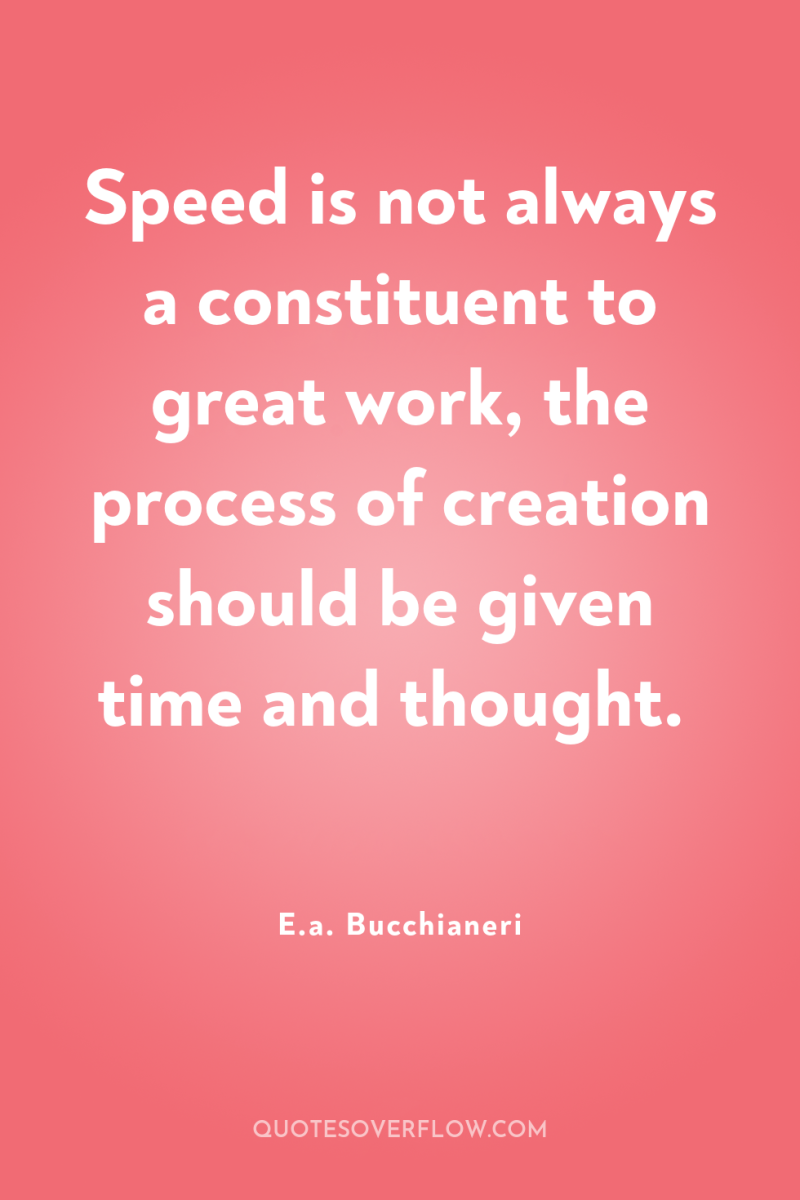
2
Speed is not always a constituent to great work, the process of creation should be given time and thought.E.a. Bucchianeri
3
She preferred the quiet solitary atmosphere, to create in her own world of paint and colour, the thrill of anticipating how her works would turn out as she eyed the blank sheets of paper or canvas before starting her next masterpiece. How satisfying it was to mess around in paint gear, without having to worry about spills, starch or frills, that was the life!E.a. Bucchianeri
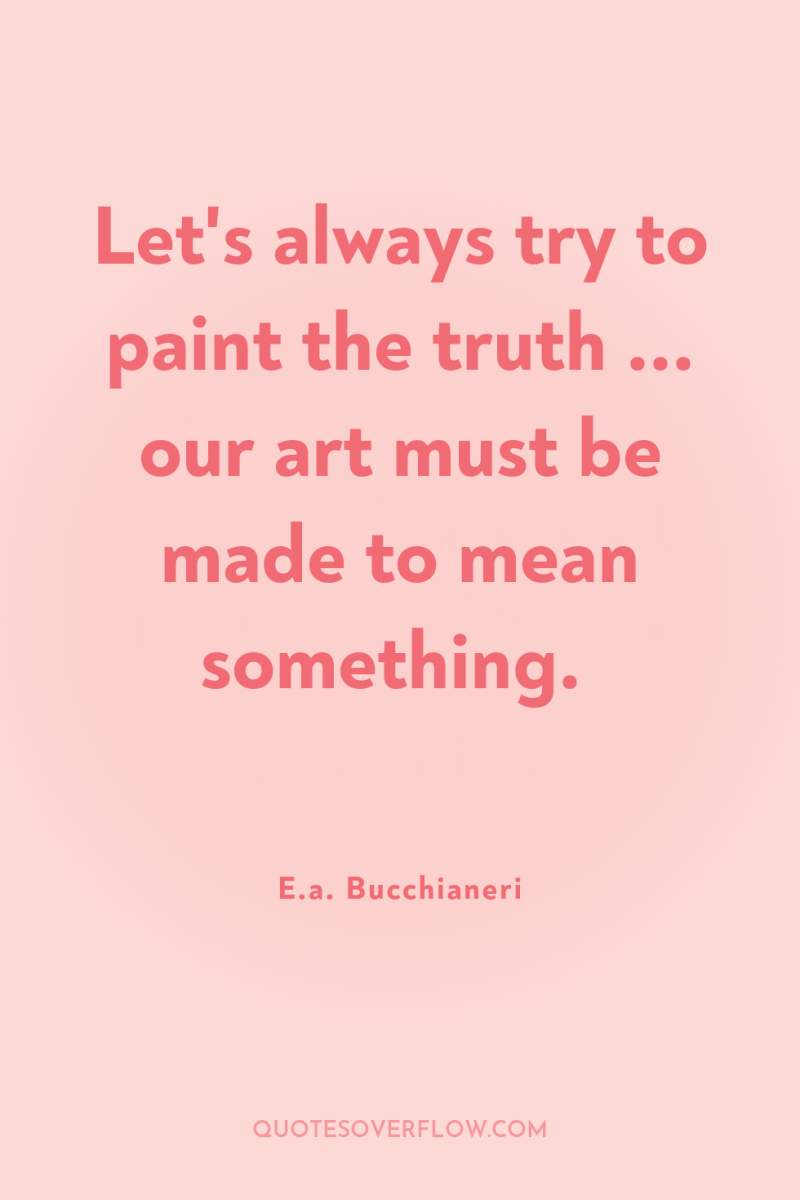
4
Let's always try to paint the truth ... our art must be made to mean something.E.a. Bucchianeri
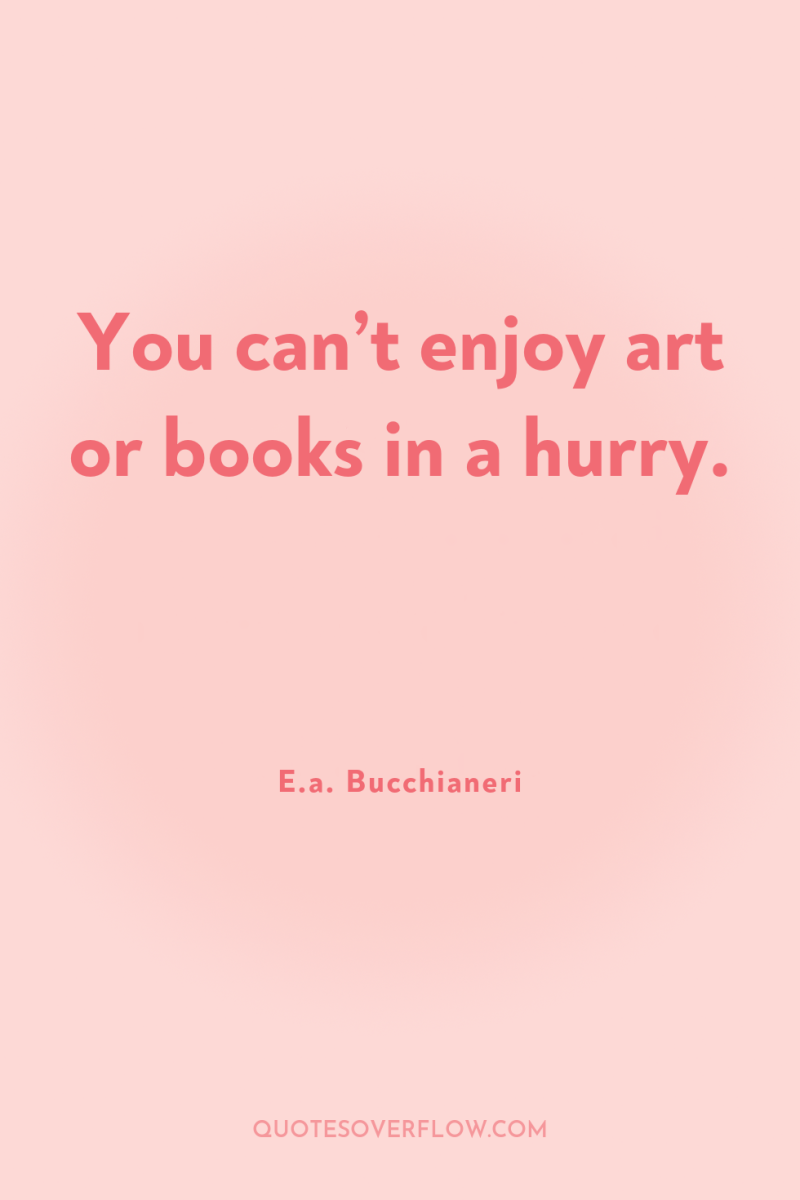
5
You can’t enjoy art or books in a hurry.E.a. Bucchianeri
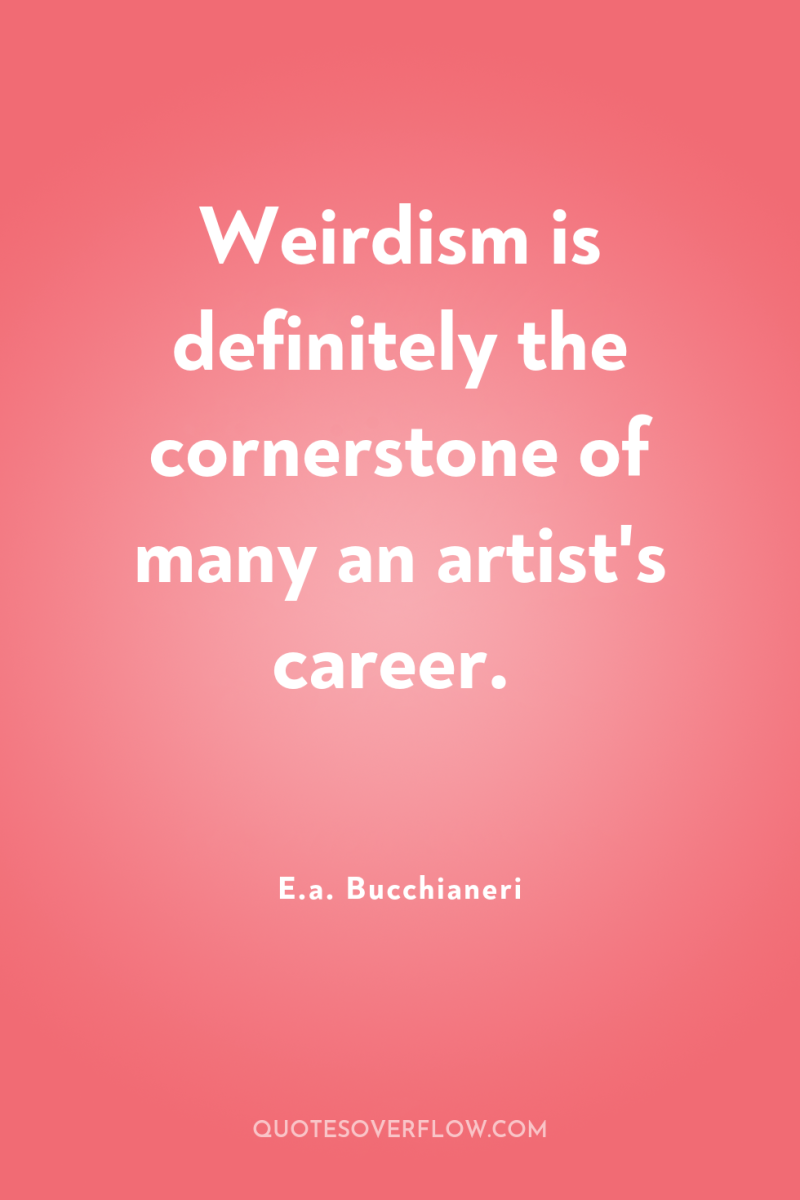
6
Weirdism is definitely the cornerstone of many an artist's career.E.a. Bucchianeri
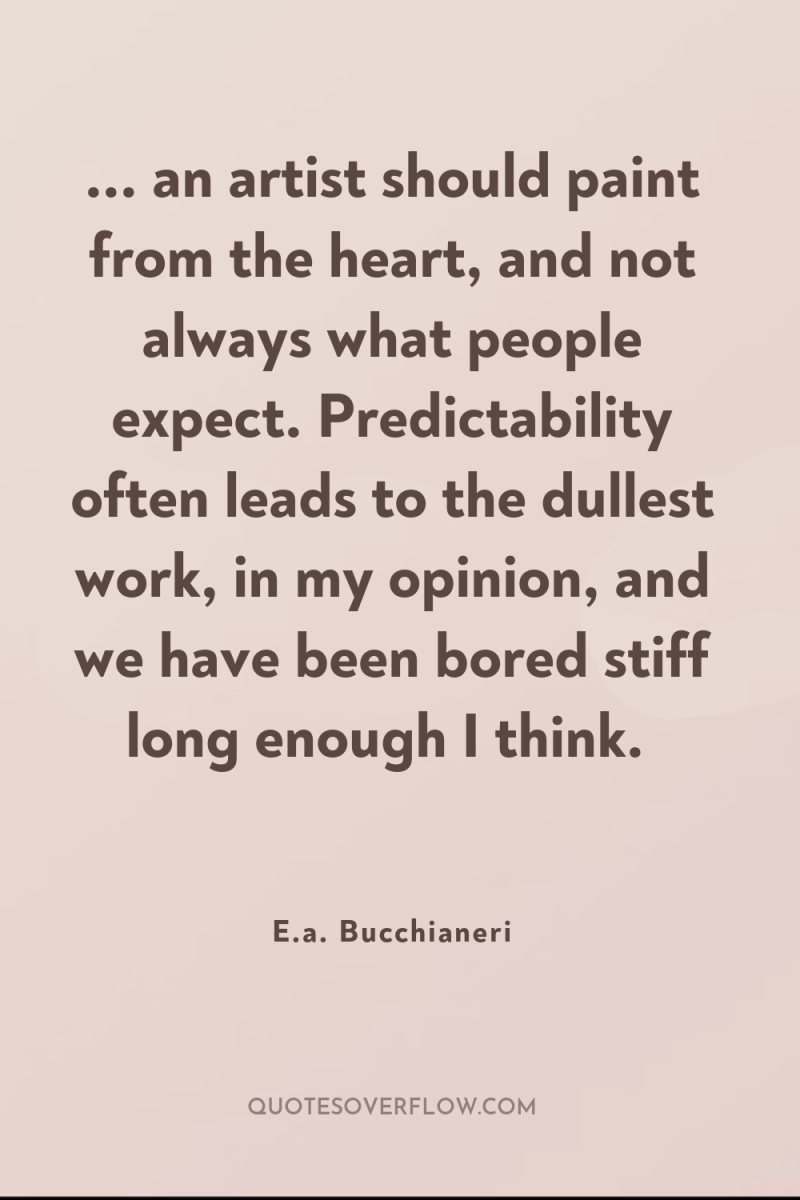
7
... an artist should paint from the heart, and not always what people expect. Predictability often leads to the dullest work, in my opinion, and we have been bored stiff long enough I think.E.a. Bucchianeri
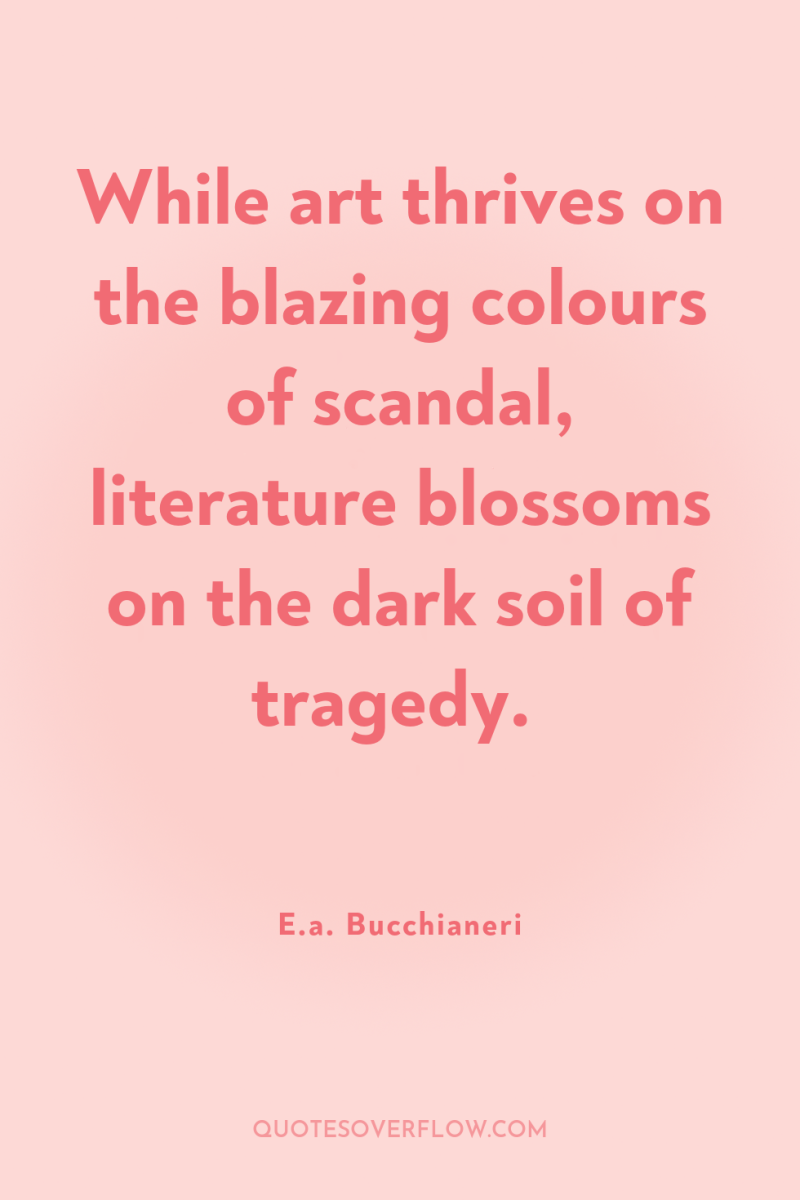
8
While art thrives on the blazing colours of scandal, literature blossoms on the dark soil of tragedy.E.a. Bucchianeri
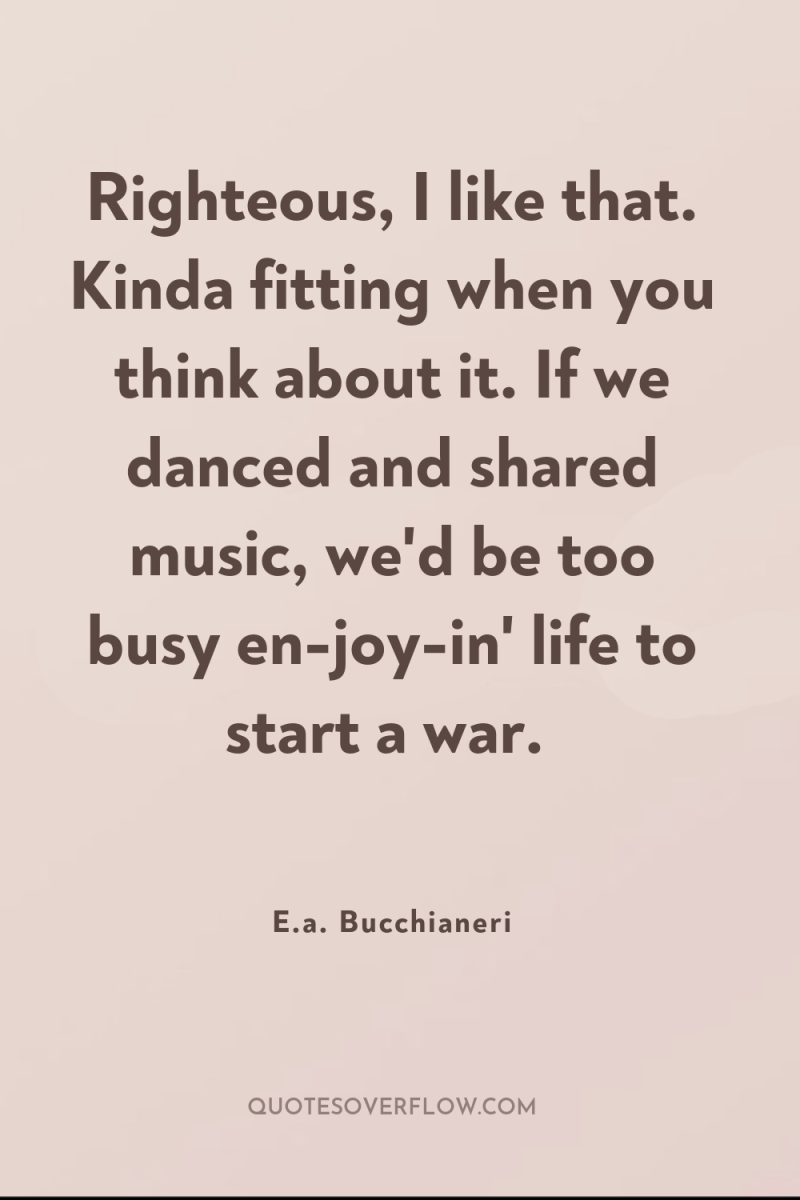
9
Righteous, I like that. Kinda fitting when you think about it. If we danced and shared music, we'd be too busy en-joy-in' life to start a war.E.a. Bucchianeri
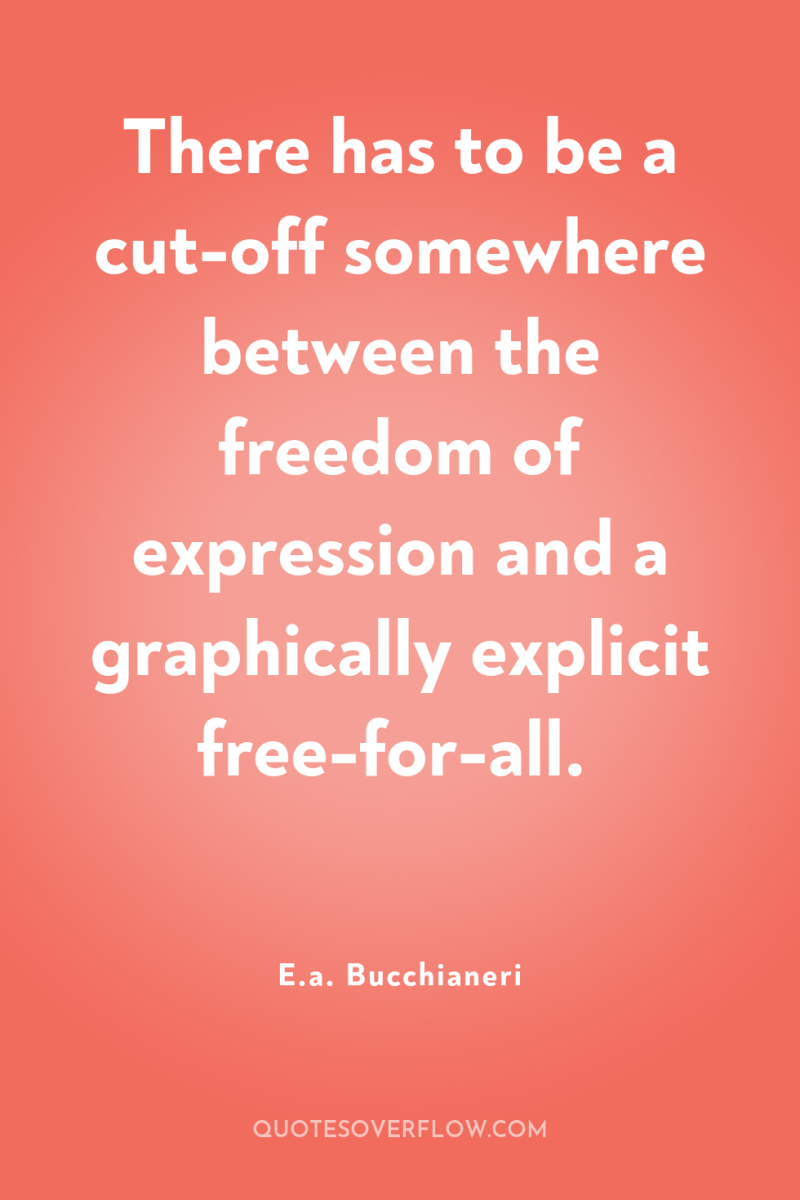
10
There has to be a cut-off somewhere between the freedom of expression and a graphically explicit free-for-all.E.a. Bucchianeri
11
Since art is considered a noble field, art should be used to promote all that is good and noble, and in a noble fashion.E.a. Bucchianeri
12
Be a good reader first, if you wish to become a good writer.Pawan Mishra
13
Turn those deep feelings and obsessions of your heart into captivating pieces of literature.Pawan Mishra
14
If you are a singer, you must sing. If you are a dancer, you must dance. If you are a writer, you must write. Don’t suffocate your heart.Pawan Mishra
15
Creativity is the most supreme form of love. When it flows from any heart flooded by truth and light, it can change all those who encounter its seductive vibrations.Suzy Kassem
16
It’s an artist’s right to rebel against the world’s stupidity.E.a. Bucchianeri
17
Art is in the eye of the beholder, and everyone will have their own interpretation.E.a. Bucchianeri
18
You know how creative people are, we have to try everything until we find our niche.E.a. Bucchianeri
19
The modern tendency towards increasing specialization in all branches of research and scholarship has discouraged comparative studies of the arts; and what we seldom do we generally distrust. But our distrust of analogies was not shared by the sixteenth century, which inherited from antiquity a habit of drawing parallels as a matter of course.John Shearman